A wise ruler ought never to keep faith when by doing so it would be against his interests
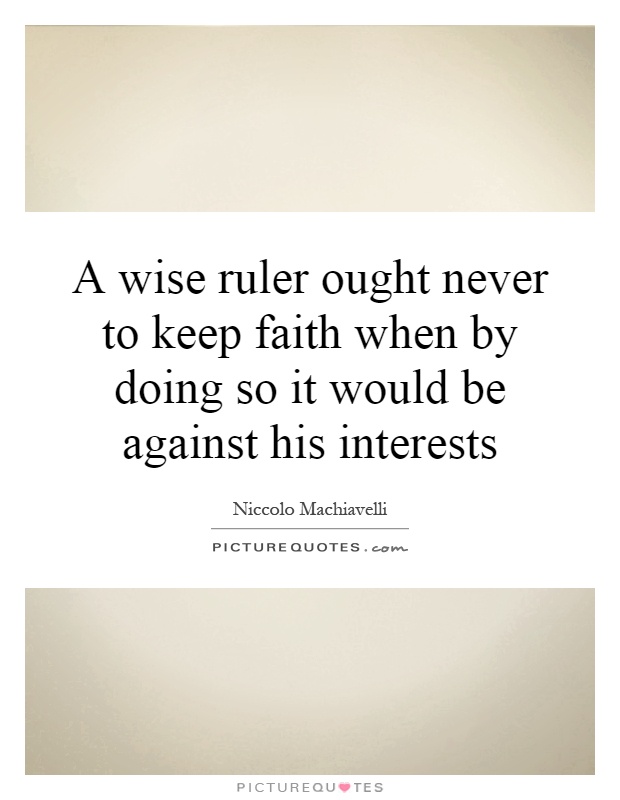
A wise ruler ought never to keep faith when by doing so it would be against his interests
Niccolò Machiavelli, a renowned Italian philosopher and political theorist, is often associated with the idea that a wise ruler should prioritize their own interests above all else. In his seminal work, "The Prince," Machiavelli argues that a ruler must be willing to act ruthlessly and unscrupulously in order to maintain power and achieve their goals. One of the key principles that Machiavelli espouses is that a ruler should never keep faith when doing so would be against their interests.Machiavelli's assertion that a ruler should not keep faith when it is against their interests is rooted in his belief that politics is a game of power and manipulation. In the world of politics, Machiavelli argues, it is essential for a ruler to be willing to break promises and betray allies if it serves their ultimate goal of maintaining power and control. This ruthless approach to politics is exemplified in Machiavelli's famous quote, "It is better to be feared than loved, if you cannot be both."
Machiavelli's advice to rulers to prioritize their own interests over keeping faith is a reflection of his pragmatic and cynical view of human nature. Machiavelli believed that people are inherently selfish and will act in their own self-interest, regardless of moral considerations. In this context, Machiavelli argues that a ruler must be willing to act in a similarly self-interested manner in order to survive and thrive in the cutthroat world of politics.
While Machiavelli's ideas may seem harsh and amoral to modern sensibilities, they were revolutionary in his time. Machiavelli's writings challenged the prevailing moral and ethical norms of his day, advocating for a more pragmatic and realistic approach to politics. In the context of "The Prince," Machiavelli's advice to rulers to prioritize their own interests over keeping faith can be seen as a reflection of his belief that power is the ultimate goal of politics, and that a ruler must be willing to do whatever it takes to achieve and maintain that power.

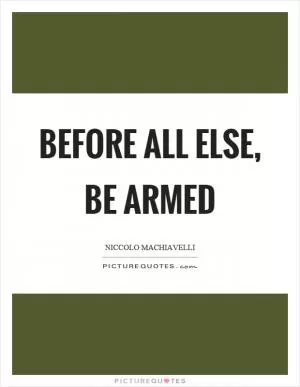


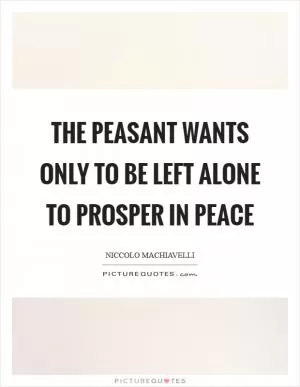
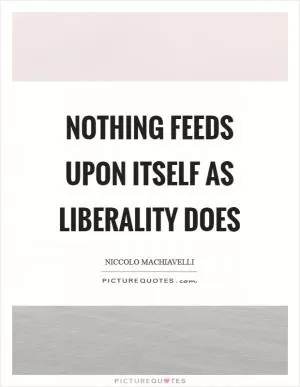




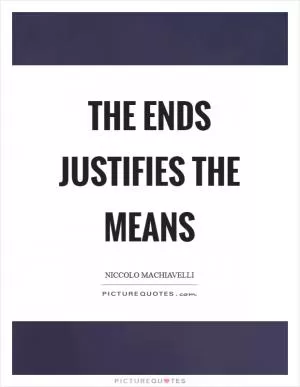
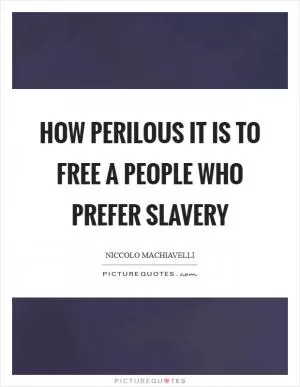
 Friendship Quotes
Friendship Quotes Love Quotes
Love Quotes Life Quotes
Life Quotes Funny Quotes
Funny Quotes Motivational Quotes
Motivational Quotes Inspirational Quotes
Inspirational Quotes